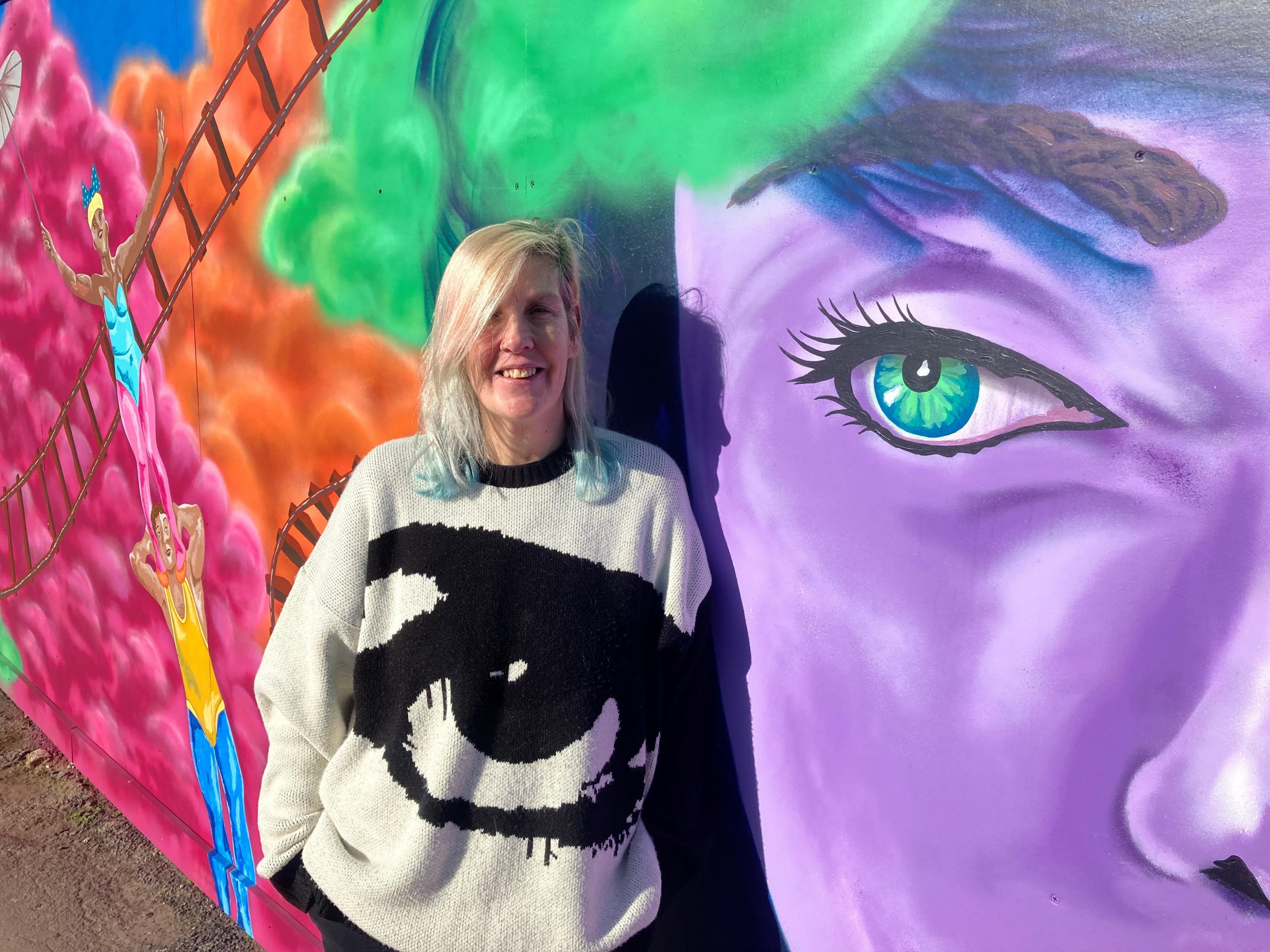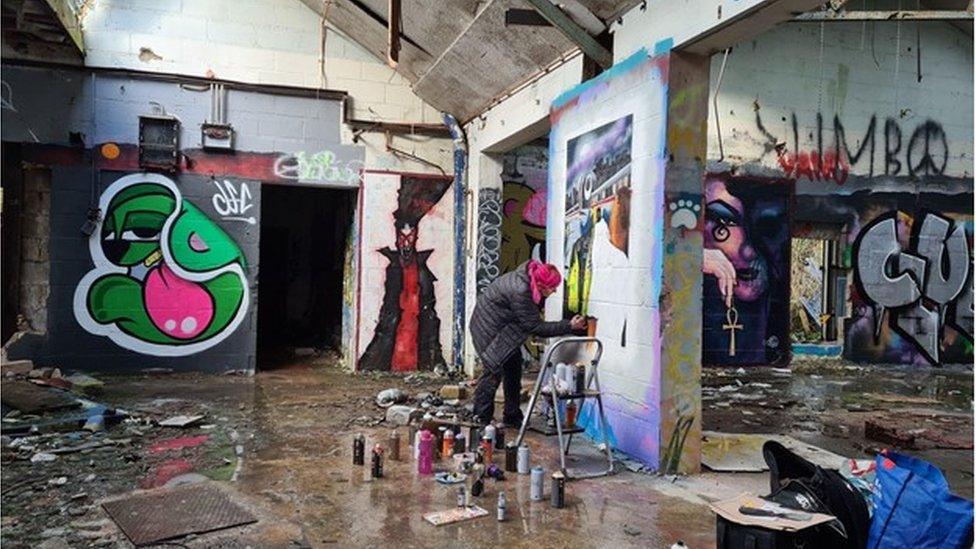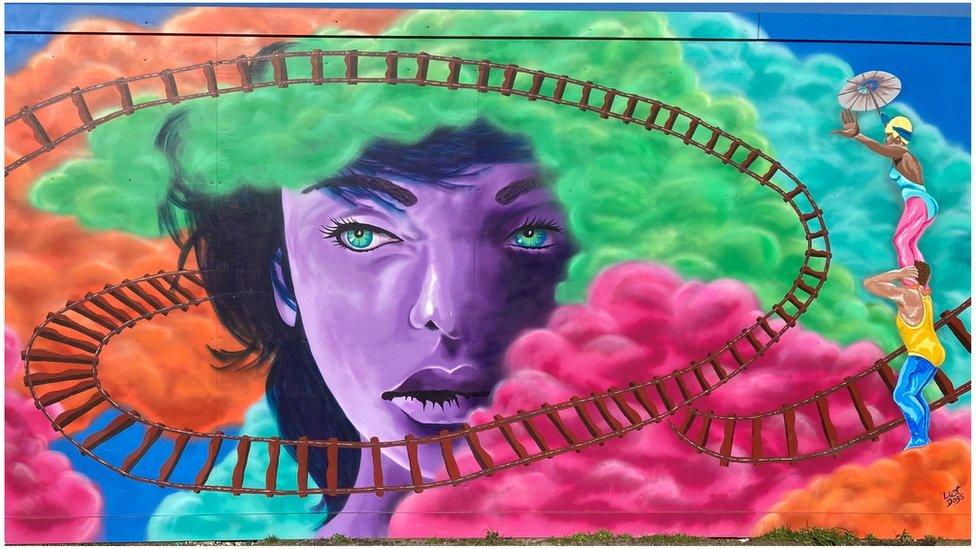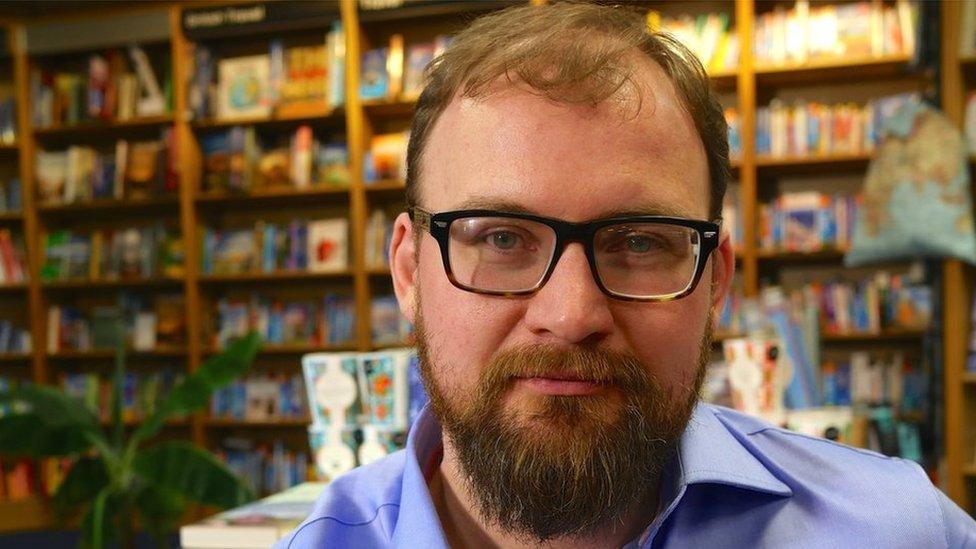Success for Swindon graffiti artist with face blindness
- Published

Street artist, Sarah Harris, is colour blind and has aphantasia
Imagine the inability to visualise a sandy beach, a stunning sunset or even the person that you love.
This is the reality for street artist, Sarah Harris aka "Lost Dogs", from Swindon.
Ms Harris was diagnosed with aphantasia or "face blindness", as she refers to it, in her fifties.
Scientists describe aphantasia as people being unable to conjure up images inside their head - known as their mind's eye.
Having picked up a spray can for the first time during lockdown, Ms Harris was recently asked to paint the cover of a global graffiti graphic novel - something she says happened as a result of her aphantasia.
She was taking part in an underground group of artists when she says she was asked to paint a page of the graphic novel in black and white.
Ms Harris resisted because her work is known for its colour; being colour blind as well, she often puts colours next to each other that really stand out and are bright.
She said the page she was originally given to paint "had the same character repeated, I said because of my face blindness when I paint the same face four times it looks like four different people, so maybe you don't want me to do that".

Ms Harris painting the front cover for "Contraband: Bad Benny" on a wall in Stroud
Listen to Ms Harris tell BBC Radio Wiltshire about the novel and aphantasia
She said she was messaged back and told: "'If colour is your thing, why don't you do the front cover instead?'
"I was really chuffed that because of my disadvantages I ended up getting bumped up to the cover," she says.
Published by indie comics title Markosia, Ms Harris and another artist, KJ Stilwell, from Southend, collaborated with graffiti artists from eight other countries including Indonesia, Turkey and India.
Ms Harris said: "It's even more fun when something's global. All different cultures are involved even though they're drawing a story based in London. They're bringing their own local art styles, which is exciting."
People followed the comic story on sites like Facebook and would need to wait until an artist painted a page in street graffiti somewhere in the world to know what happened next in the story.

Carfax Street, Swindon, commissioned by Swindon Borough Council. Unable to visualise the people and train tracks in her mind Ms Harris used digital images of tracks and photos of Swindon's blondinie statue to paint this piece
Ms Harris has looked back at how school was tough for her and hopes being labelled will not put off those with face blindness from becoming the next generation of artists.
"Teachers used to say to me, 'we don't understand Sarah, your still life's are fantastic but anything else, it's like you're not trying', they thought I wasn't putting the effort in but I really was.
"Now I look back and it's really obvious I could do still life because there was a bowl of fruit right in front of me so I could copy it, I could draw it pretty much spot on. They never put two and two together so I just got told off a lot for not putting the effort in."
If a young person with aphantasia is considering taking up art, Ms Harris says, "go for it and don't worry you've probably got a classmate who can draw perfect faces with no reference at all".
"Don't think 'oh they're a proper artist and I'm not' because proper art is a huge range and there are loads of artists with aphantasia, and I can look at their work and see that it's similar to mine.
"Other than not being very good at recognising people in the street, aphantasia hasn't really disadvantaged me to any extent at all."

Follow BBC West on Facebook, external, Twitter, external and Instagram, external. Send your story ideas to: bristol@bbc.co.uk
Related topics
- Published26 August 2015
